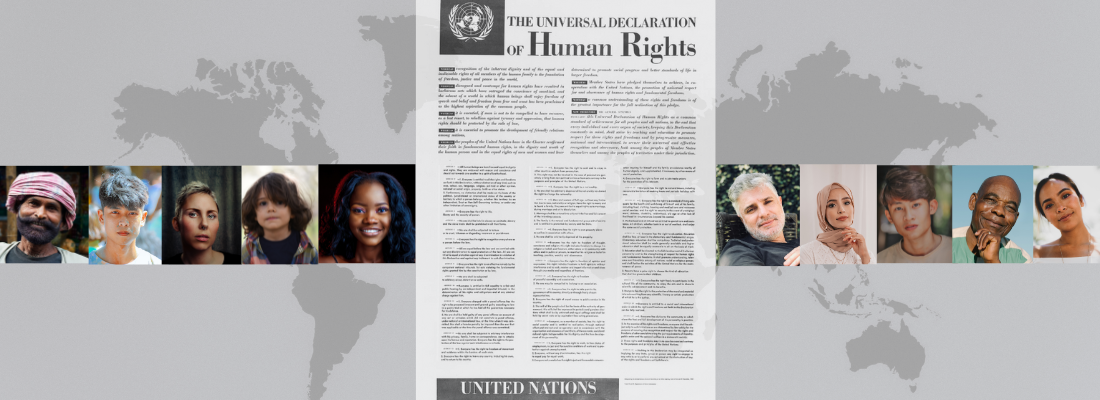IBAHRI commemorates 75th anniversary of the Universal Declaration of Human Rights and reaffirms commitment to upholding human dignity

As the world marks the 75th anniversary of the Universal Declaration of Human Rights (UDHR), the International Bar Association’s Human Rights Institute (IBAHRI) stands firm in its dedication to championing human rights and fostering a global culture of dignity, equality and justice for all.
Seventy-five years since its creation, the UDHR remains an invaluable compass of equality, fairness and justice. It serves as a blueprint for the values that modern societies ought to be built on. Indeed, many would claim it is the most important legal instrument of modern times.
The 30 rights enshrined in this milestone document belong to all of us. We all share a common humanity and must value the foundational elements that unite us. We all desire security, freedom from arbitrary arrest and protection from inhumane treatment and torture – to name a few – and as individuals we all find full self-realisation through our relationships with others and in our spiritual capacities. We do not want to be arbitrarily curbed by authorities; we want freedom. We want basic economic, social and cultural rights which allow us to build our lives on a trajectory that fulfils us most. This is what we need to thrive as human beings.
While celebrating the achievements made in advancing human rights globally, the IBAHRI acknowledges the persistent challenges and inequalities that demand ongoing attention.
At the end of the cold war, during the 1990s, we saw a flourishing of democracy and adherence to the rule of law globally. However, the new millennium saw the descent of many nations into authoritarian nationalism and a failure to protect human rights in many parts of the world. The rising tide of conflict has led to many atrocity crimes, with ordinary citizens, including women and children, paying the greatest price.
While advances have been made in recent years towards achieving equality for women, the persistent use of sexual violence against women remains one of the greatest misogynistic obstacles to women rising, and it is not declining. It is part of a daily experience, but it is also at its most raw and vicious during war. We have seen it in the egregious rapes of women during conflicts in Bosnia and Herzegovina, the Democratic Republic of Congo, Kosovo, Rwanda, Tigray and many other places. Presently, we see it happening in the recent attacks in Israel, Sudan and Ukraine. Women and girls – and in some cases men and boys too – suffer or witness the most sadistic and gruesome abuse which, long after peace agreements are signed, leave them forever traumatised.
War is a time when human rights are needed most of all. The world is not only facing violent conflicts but has had the recent experience of a pandemic; is confronted with climate emergencies; and the economic gulf between rich and poor remains unabated. It is when we face challenges like these that human rights matter more than ever.
As the IBAHRI marks the historic milestone of the UDHR, it calls upon governments, civil society organisations and individuals worldwide to redouble their efforts in translating the principles of the Declaration into tangible actions that safeguard the rights and dignity of every individual, and to retain respect for international law and principles.
Together, let us propel the legacy of the Universal Declaration of Human Rights into a future where human rights are not just an aspiration, but an unshakable reality for everyone.
ENDS
Contact: IBAHRI@int-bar.org
Notes to the Editor
- The International Bar Association’s Human Rights Institute (IBAHRI), established in 1995 under Founding Honorary President Nelson Mandela, is an autonomous and financially independent entity, working to promote, protect and enforce human rights under a just rule of law, and to preserve the independence of the judiciary and the legal profession worldwide.
- The International Bar Association (IBA), the global voice of the legal profession, is the foremost organisation for international legal practitioners, bar associations and law societies. Established in 1947, shortly after the creation of the United Nations, it was born out of the conviction that an organisation made up of the world's bar associations could contribute to global stability and peace through the administration of justice